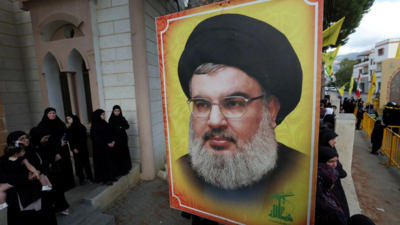The recent confirmation of Hezbollah leader Hassan Nasrallah‘s death in an Israeli airstrike marks a pivotal moment for the Iran-backed Lebanese militant group he has led for 32 years. Analysts predict that Nasrallah’s assassination will inflict significant damage on Hezbollah, complicating the already daunting challenge of finding a suitable successor.
Israel’s chief of staff Herzi Halevi said that the operation targeting Nasrallah was a result of extensive planning, signaling that further military actions against Hezbollah are likely.
Challenge of succession
Identifying a successor to Nasrallah presents a complex challenge as the new leader must garner support not only from within Hezbollah’s ranks in Lebanon which is under Israel’s heavy attack but also from the group’s powerful backers in Iran.
According to reports from the Times of Israel, Hashem Safieddine is being viewed as a potential heir to Nasrallah. A cousin of the late leader, Safieddine is currently overseeing Hezbollah’s political affairs and serves on the group’s Jihad Council.
However, Safieddine was designated a terrorist by the US State Department in 2017 and has previously threatened retaliation against Israel following the deaths of other key Hezbollah figures.
Who was Nasrallah?
Hassan Nasrallah, who became secretary-general of Hezbollah in 1992, transformed the group into one of the most powerful militant organizations in the Middle East. His tenure was marked by a staunch anti-Israel stance and a commitment to resisting perceived Western imperialism. Nasrallah’s leadership not only solidified Hezbollah’s military capabilities but also its political influence in Lebanon.
Born in 1960 into a modest Shiite family, Nasrallah’s rise began with his involvement in the Amal movement before helping to found Hezbollah in the early 1980s. Under his guidance, Hezbollah declared its formation with a manifesto that called for the “obliteration” of Israel, positioning the group as a key player in the ongoing Arab-Israeli conflict.
Rising tensions in the region
In the wake of Nasrallah’s death, the Israeli military has mobilised additional reserve soldiers, activating several battalions amid fears of increased conflict with Lebanon. Recent Israeli strikes in southern Beirut and the Bekaa Valley have led to Hezbollah retaliating with projectiles aimed at northern and central Israel.
At least 720 people have been killed in Lebanon according to the health ministry since significant escalation in the conflict.
